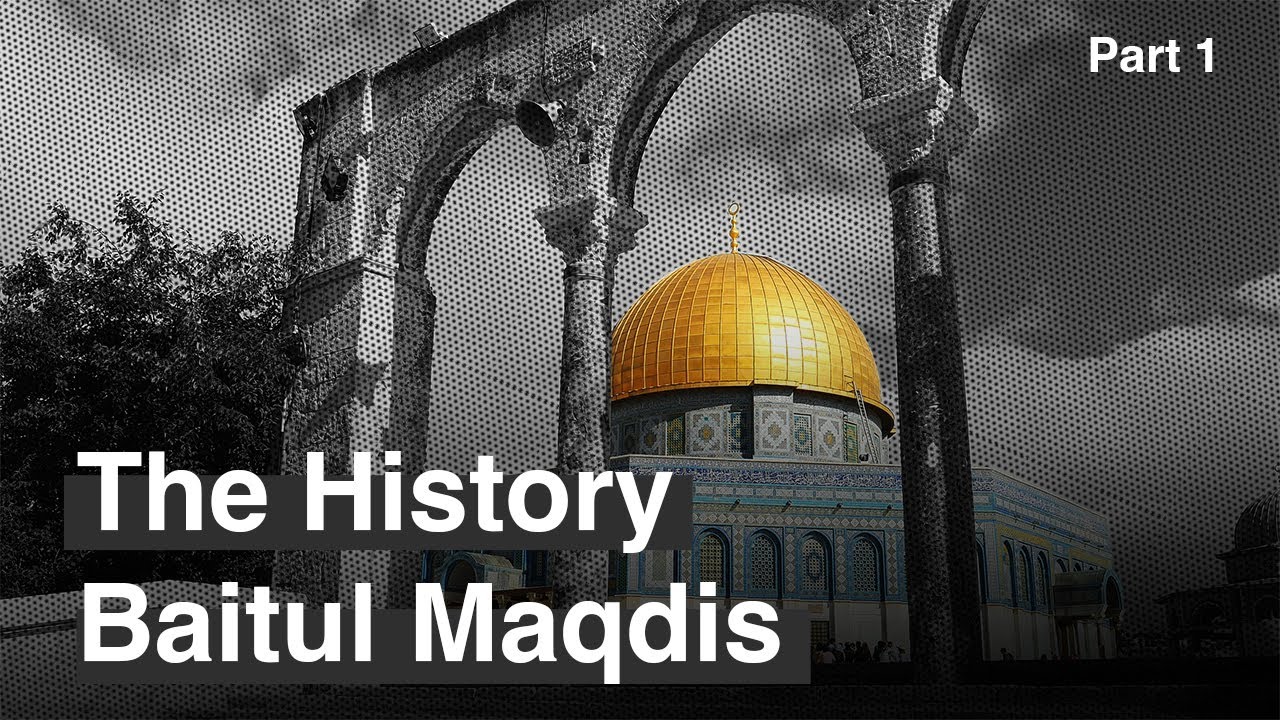Rise of Muslim Spain (History of al andalus)
Summary
TLDRThis video explores the rise of Islamic Spain, a pivotal era in human history. It details the rapid expansion of Islamic lands from a small city-state to controlling three continents within a century. Key events include the Prophet Muhammad's flight to Medina, the establishment of the Islamic calendar, and the conquests leading to the Umayyad Caliphate. The script also delves into the Islamic conquest of Spain, the establishment of Al-Andalus, and its cultural and economic zenith under Abd al-Rahman III, making it a powerhouse of medieval Europe.
Takeaways
- 🌍 The early Islamic conquest was one of the most significant land expansions in history, comparable to the Mongol Empire and Roman Empire's expansion.
- 🕋 Within a century, from 622 to 722, Islamic lands expanded from a small city-state to control across three continents, marking a vast religious, military, and cultural impact.
- 👤 The Prophet Muhammad's preaching in Mecca in the 7th century led to the birth of Islam, which faced opposition from the local aristocracy, leading to the Hijrah to Medina in 622.
- 🏰 Muhammad's return to Mecca in 630 CE marked the beginning of rapid territorial expansion under his successors, known as the Caliphs.
- ⚔️ The pivotal year of 636 saw decisive victories over the Byzantine Empire at the Battle of Yarmouk and the Sassanian Empire at the Battle of al-Qadisiyyah, leading to significant territorial gains.
- 📍 The Islamic Caliphate's borders eventually stretched from the Atlantic Ocean in the west to the Indus River Valley in the east.
- 🔄 The Muslims' conquest of Africa began with the rapid takeover of Egypt in 642, followed by the rest of North Africa, encountering and eventually uniting with the Berber tribes.
- 🏰 In 711, the Islamic forces crossed into the Iberian Peninsula, leading to the establishment of Al-Andalus, with Cordoba becoming a major cultural and political center.
- 🛡 The Visigothic rule in Spain was marked by internal strife and decline, making it vulnerable to the Islamic forces led by Tariq ibn al-Zayad.
- 🏰 The Umayyad Emirate of Cordoba, established by Abd al-Rahman I in 756, became a significant power in medieval Europe, with Abd al-Rahman III further elevating its status.
Q & A
What is the significance of the year 622 in the context of Islamic history?
-The year 622 is significant because it marks the Hijrah, the migration of Prophet Muhammad from Mecca to Medina, which is considered the beginning of the Islamic calendar.
How did the early Islamic conquests compare to other historical land grabs?
-The early Islamic conquests were one of the greatest land grabs in history, comparable to the expansions of the Mongols in the 12th and 13th centuries and the Romans after the Punic Wars.
What major geographical areas did the Islamic Caliphate control by 722?
-By 722, the Islamic Caliphate controlled lands from the Atlantic Ocean in the west to the Indus River Valley in the east, spanning three continents.
Which two superpower states bordered the early Islamic Caliphate?
-The early Islamic Caliphate was bordered by the Byzantine Empire to the northwest and the Sasanian Empire (Persians) to the northeast.
What were the outcomes of the battles of Yarmouk and al-Qadisiyyah in 636?
-The battles of Yarmouk and al-Qadisiyyah in 636 resulted in decisive victories for the Islamic forces, leading to the defeat of the Byzantine and Persian empires respectively.
How did the Islamic forces expand into Africa?
-Islamic forces expanded into Africa by first conquering Egypt in 642 and then moving across North Africa, encountering and eventually uniting with the Berber tribes.
What was the significance of the year 711 in the context of the Iberian Peninsula?
-In 711, the Islamic forces crossed into the Iberian Peninsula, initiating the conquest of Spain and the establishment of Muslim rule in the region.
Who was Tariq ibn Ziyad and what is his significance in the Islamic conquest of Spain?
-Tariq ibn Ziyad was a Berber general who led the forces that initiated the Islamic conquest of Spain, defeating the Visigothic king Roderick at the Battle of Guadalete.
What was the fate of the Umayyad Caliphate and how did it impact the Islamic rule in Spain?
-The Umayyad Caliphate was overthrown by the Abbasid Caliphate in 750, leading to the establishment of the Umayyad Emirate of Cordoba in Spain by Abd al-Rahman I.
How did Abd al-Rahman III contribute to the rise of Al-Andalus?
-Abd al-Rahman III transformed Al-Andalus into a powerful, culturally sophisticated, and economically prosperous state, with Cordoba becoming one of the most important cities in medieval Europe.
What was the role of the Berber tribes in the Islamic expansion into North Africa and Spain?
-The Berber tribes initially resisted the Islamic forces but eventually joined them, playing a crucial role in the conquest of North Africa and Spain, and contributing to the expansion of the Caliphate.
Outlines

This section is available to paid users only. Please upgrade to access this part.
Upgrade NowMindmap

This section is available to paid users only. Please upgrade to access this part.
Upgrade NowKeywords

This section is available to paid users only. Please upgrade to access this part.
Upgrade NowHighlights

This section is available to paid users only. Please upgrade to access this part.
Upgrade NowTranscripts

This section is available to paid users only. Please upgrade to access this part.
Upgrade NowBrowse More Related Video

Dinasti Umayyah di Andalusia

SEJARAH PERADABAN ISLAM DINASTY ABBASIYAH SERI MATA KULIAH

Dinasti Umayyah II di Spanyol/Andalusia

Daulah Umayyah II Di Spanyol (Andalusia) || Awal mula Berdiri, Masa Keemasan, dan Berakhirnya Daulah

Sejarah Baitul Maqdis - Akar Krisis Palestina (1/2)

Sejarah Apartheid di Afrika Selatan
5.0 / 5 (0 votes)